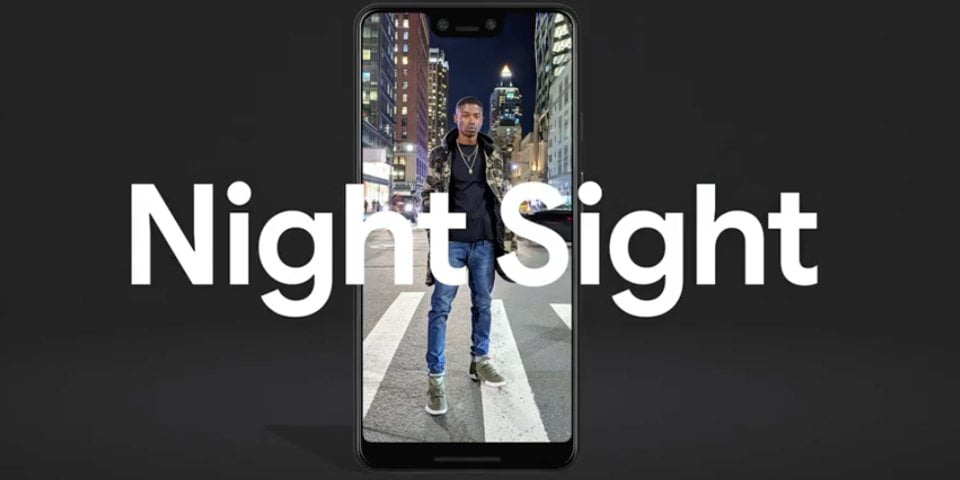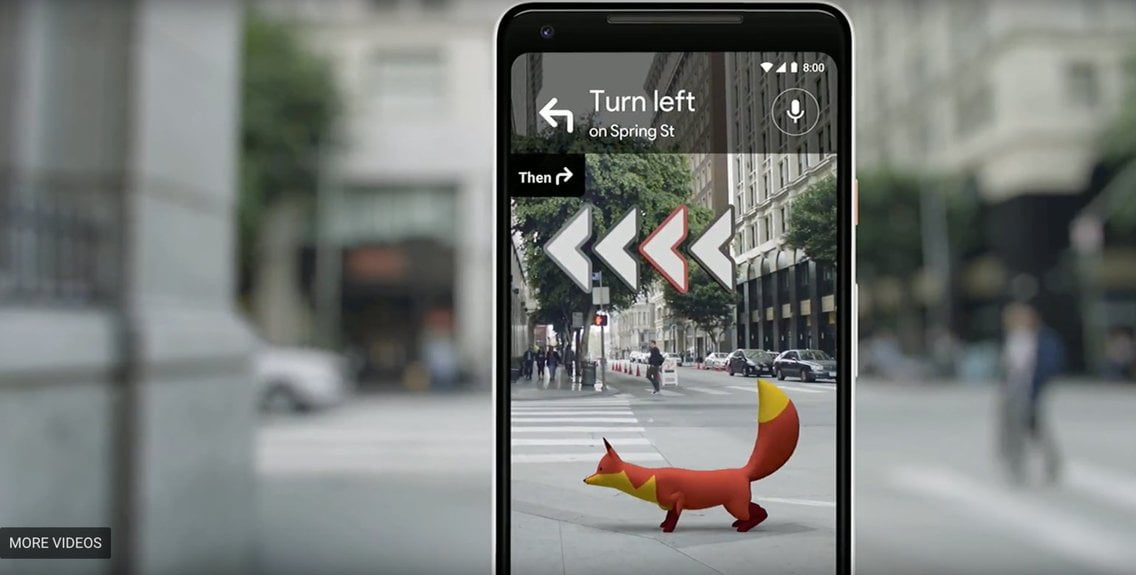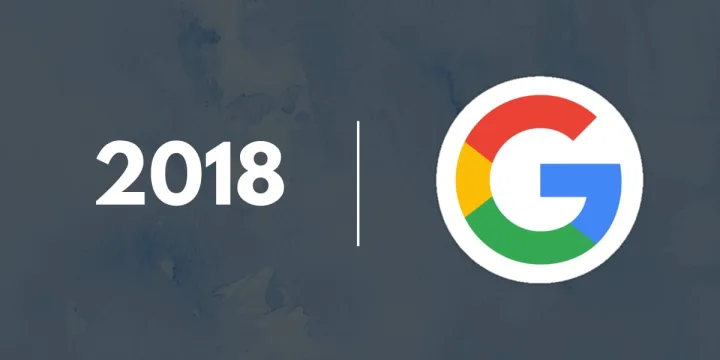It was a big year for Google. The search engine had a roller-coaster 2018. Despite facing many problems, Google had a pretty successful year overall.
Here are some of Google’s 2018 highlights:
Animals
Google had a lot of fun times with animals this year, which really put a smile on all of our faces. The company made an awesome Doodle for the Year of the Dog. This moment marked the Chinese new year.
Google also created a special dog-themed version of the game “Quick, Draw!” in which AI would try to figure the doodles that users drew. Neural networks were used to recognize the doodles. Users could gather data about the ruff-ly (pun intended) 140,000 dogs that people drew in Quick, Draw! and everyone got a chance to see fantastic dog doodles from across the globe in a special Lunar New Year version of Facets Dive, which is software that visualizes large sets of data.
Of course, Google Street View managed to capture a lot of dog photos across the world over the course of the year. The tool captured was even strapped to some adorable Akita dogs in Japan to help map rough terrain. Good doggies!
On a less canine note, TensorFlow, Google’s open source machine learning library, helped farmers track their cows’ health in the Netherlands.
Even a flock of egrets managed to join the fun this year when they landed on Googleplex over the summer. Googleplex is the name Google gave to its headquarters in Mountainview California.
Artificial Intelligence
Google created a lot of products that relied on Artificial Intelligence this year, combining self-learning mechanics, intuition, and decision making into a unique user experience.
This year, Google created Magenta, a machine learning tool that helped musicians with the creative process involved in making captivating music. It has machine learning algorithms that use deep neural networks to learn the properties of sounds. Once the algorithm has learned the sound property, it can create new content.
The search engine giant also created a game that utilized machine learning to show players emojis. Players had to find the real-life version of the emoji (for example, a pizza slice) before time ran out. Emoji Scavenger Hunt was created in TensorFlow’s Javascript framework.
Google also teamed up with Kaggle and the NCAA this year for a bracketology challenge. A community of data scientists and machine learners built models of all possible outcomes of the men’s and women’s basketball championships. The competition was a way to design and develop machine learning systems that could predict games’ results.
Google AI became so smart in 2018 that it could detect breast cancer in humans with up to 99 percent accuracy. The AI could spot metastasis in a variety of tissue samples. It was technically more efficient than actual humans. It’s could provide a strong foundation for breast cancer prevention programs.
Pixel Phones and the software magic behind them

Google’s Pixel phones were a breath of fresh air in the smartphone industry. Not only did they offer premium simplicity, but the software they had implemented was the best Android had to offer. The camera was simply superb, not just because of the hardware, but the clever software tweaks Google had done.
One of the best features is “Night Sight.” It lights up a dark scene without the need for a flash or artificial lighting, creating well-lit, natural looking photos at night. Then there is the “Photobooth” feature. It automatically took photos when a person made a weird or funny face.
Out of all the features Google added in Pixel hardware, Google Lens has to be the best. It can now detect a billion items and give relevant search results to the photo being captured. It is so refined that it can even give results with a similar stylistic theme. Google Lens can also detect words written on a piece of paper, such as a shopping list, or a book.
Pixel phones were also given a “Screen Call” option. This feature allowed Google’s Duplex technology to answer phone calls on users’ behalf. It allowed the call to be screened, Google to ask who the caller was and why they were calling and display the text of this conversation on the recipient’s lock screen. Users would then have the option to answer or reject calls.
Google Duplex also allowed Google Assistant to make appointments on users’ behalf. It still has a long way to go and is only available in a few cities in the US, but it is quite a remarkable feature.
Pixel phones had great specs, but the real win was Google’s futuristic camera features.
Android Pie
Another big moment was Google’s release Android P. The best feature of Android Pie as I like to call it is “flip to shhh.” This feature was much needed and allowed users to automatically put their phones to “do not disturb” mode when users flipped the phone and put it face down on a flat surface.
Google’s 20th Birthday
Google celebrated its 20th birthday this year. To mark this great accomplishment, the company took us on a trip down memory lane by showing us its 20 most revolutionary Doodles. The company then showed us the famous garage where Google was born.
It utilized street view to take us on a journey where Sergey Brin and Larry Page spent their time developing what was to be the most popular search engine in the world.
Google held month-long celebrations to recognize their accomplishments and mark this proud moment. The company also put together a plan of what it wants to accomplish over the next two decades, for the next generation of billion users.
Google Maps’ new Street View feature

Google Maps added a brilliant and quirky new feature that is both useful and creatively hilarious at the same time. It uses Street View and augmented reality features to help people navigate through the streets via their phone’s viewfinder.
Giant arrows and animated characters helped guide users along the right path and make a simple task such as walking to the store a pleasure. It is not available to the public just yet, but the glimpse we got in 2018 makes us more excited than we’d like to admit.
Project Stream
Another massive project that Google undertook this year was Project Stream. This application is a dream come true for gamers spread across the globe. Project Stream is a remarkable idea that will allow users to play any graphic-intensive AAA title in 60 frames per second at 1080p resolution on their Chrome browsers.
It will only require a high-speed Internet connection. Individuals who have always wanted to play graphics-intensive games but did not have the money to build a high-end gaming PC will be able to do it now, thanks to Google.
Essentially, the games would run remotely on Google’s high-performance servers, but the game would be streamed to users’ browsers. Project Stream opened for testing in 2018. Users got to try out Ubisoft’s Assasins’ Creed Odyssey.
In all honesty, it should have gotten more attention than it did and we cannot wait for the service to go live.
Project Dragonfly
Project Dragonfly picked up a lot of steam in 2018, and it seemed like the project was almost done when Google’s own employees boycotted the project. This was to be Google’s search engine specifically created for the Chinese market.
It had to follow China’s rules, so the search engine needed to block a lot of websites, censor a lot of controversial topics, and would have tracked China’s citizens’ online activity as well. For these reasons, the project had to be scrapped. Employees protested that it was against the basic human rights of liberty and freedom.
Google Assistant got new features
Google Assistant also came a long way in 2018. It bloomed into a remarkable piece of tech wizardry. It took more effort for users to baffle it. Users could have longer conversations with it and it could handle multiple commands in a continuous sentence.
Google engineers tweaked the voice, so it now sounds more natural than ever before, and users could choose from a bunch of new voices, including RnB singer John Legend’s voice.
Google also added a new politeness feature in Google Assistant where saying “please” and “thank you” gave users more credit, and it acknowledged acts of politeness. It was designed to teach young kids how to be polite.
Project Maven
The $70 million project was another controversial deal that Google was involved in. It began in 2017, but also had to be scrapped in June 2018 because 3000 Google employees protested against it. The project analyzed drone footage to design algorithms that improved drone strikes on the battlefield.
Given the nature of the project, a lot of employees were upset and signed a petition asking the company to cancel its contract with the US military. Dozens of employees even quit the company as they did not want to be part of the bloodshed that this project would eventually lead to. Ultimately Google did not renew its contract and Project Maven bit the dust.
Google CEO Sundar Pichai had a hearing
The hearing was set up approximately a month ago in November and took place at Capitol Hill. It was specifically set up by Republicans to discuss possible discrimination against them. Republicans alleged that Google was being biased against them and gave preference to left-wing news sources and articles in its searches.
Pichai kept extremely cool and simply stated this wasn’t true at all. The CEO reassured Republicans that Google did its own testing and there wasn’t any kind of liberal bias involved. Basically, it meant the news and search results that Google displayed depended on the actions of Republicans.
In other words, Google would show good news if people did good things. “If you want positive search results, do positive things,” Rep. Ted Lieu (D-CA) chimed in.
All in all, it was a mixed bag for Google. The search engine behemoth brought many advances in technology, but it was also involved in several controversies and scandals that left a bad aftertaste for both users and their own employees. But as a company, Google is still going strong, and cannot be stopped.
One simple reason for this is that it has zero competition. Other search engines such as Bing and DuckDuckGo don’t come anywhere near Google; they are simply not as sophisticated as the tech giant.

![Evolution of the iPhone [2007 - [year]] 3 Evolution of the iPhone [2007 – 2025]](https://techengage.com/wp-content/uploads/2019/01/iphone-12-pro-front-jpg-webp.webp)



Share Your Thoughts